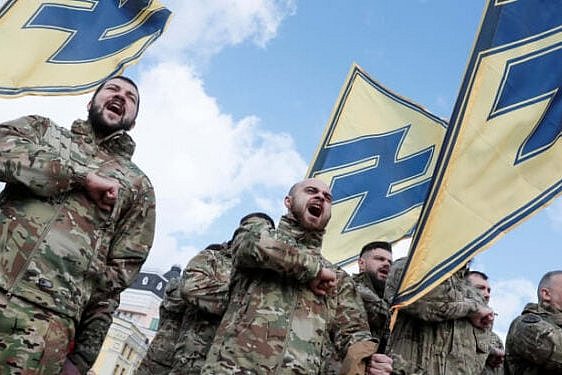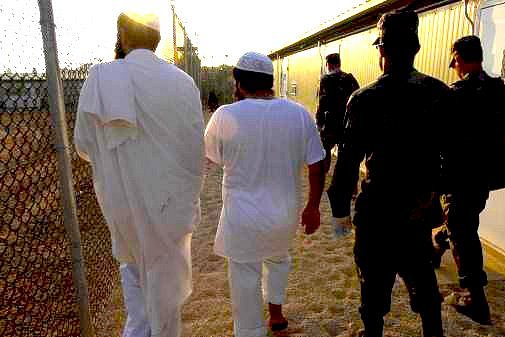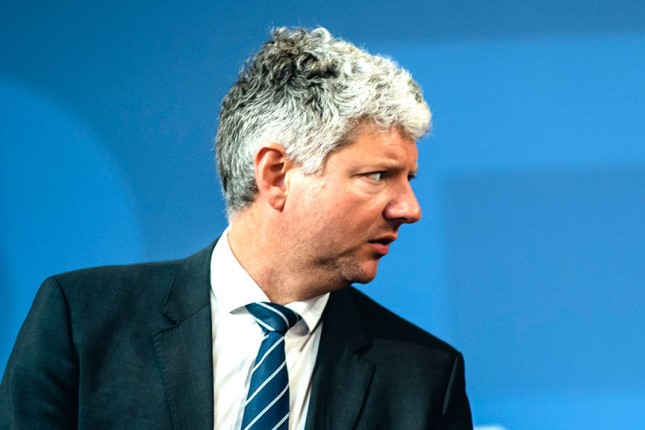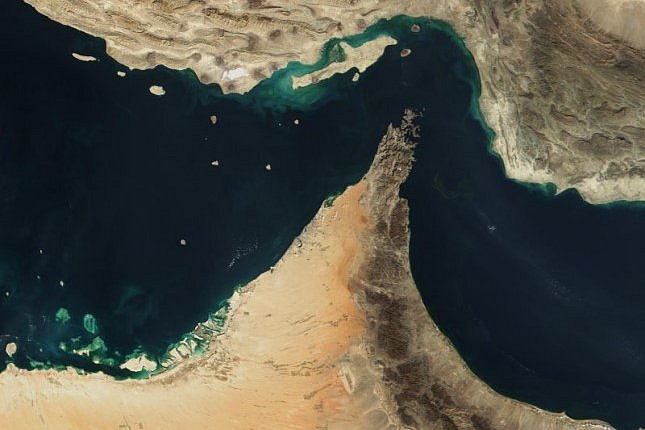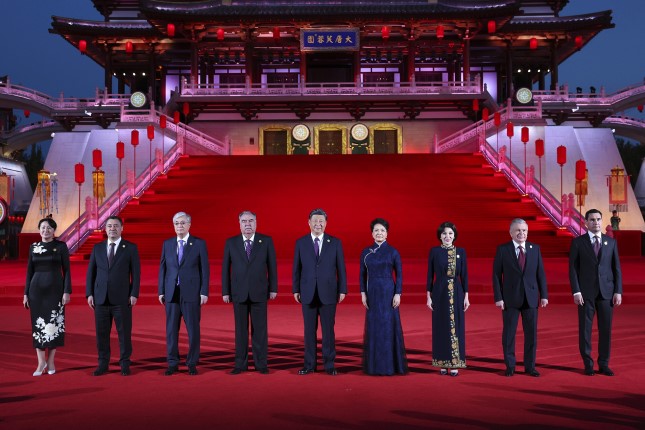The recent assassination of the Ukrainian neo-fascist politician Andriy Parubiy are a grim reminder of the far-right origins of the 2014 Ukrainian revolution — a revolution which eventually gave way to the full-scale Russian invasion of February 2022 and a war that has decimated the Ukrainian state.
At two key moments over the past 20 years, during 2004’s Orange Revolution and, a decade later, during the Maidan uprising, Ukraine’s nationalist political elites, at the urging of the American foreign policy establishment, sought to marginalize, stigmatize and eventually disenfranchise the substantial bloc of ethnic Russian citizens living in the country’s east and south.
That such an eventuality was possible (if not likely) was foreseen some 35 years ago by the last decent foreign policy president we’ve had, George H.W. Bush, who crafted a post Cold War policy based on (1) a refusal to rub Russia’s diminished fortunes in its face and (2) a wariness of re-awakening the poisonous sectarianism that so marked the politics of Eastern and Central Europe at mid-century.
Bush’s emphasis was on avoiding creating unnecessary crises within the post-Soviet space rather than provoking new ones (as subsequent Republican and Democratic administrations have chosen to do). As Bush’s secretary of state James A. Baker later wrote: “Time and again, President Bush demanded that we not dance on the ruins of the Berlin Wall. He simply wouldn’t hear of it.”
The nature of the Cold War had changed with Mikhail Gorbachev’s UN Speech of December 7, 1988. Gorbachev announced that the USSR was abandoning the class struggle that for decades served as the basis for Soviet foreign policy. In place of that, Gorbachev declared that Eastern European states were now free to choose their own paths, declaring that “the compelling necessity of the principle of freedom of choice” was “a universal principle to which there should be no exceptions.”
Gorbachev continued:
…The next U.S. administration, headed by President-elect George Bush, will find in us a partner who is ready – without long pauses or backtracking – to continue the dialogue in a spirit of realism, openness and good will, with a willingness to achieve concrete results working on the agenda which covers the main issues of Soviet-U.S. relations and world politics.”
Initially, Bush and his team were skeptical of Gorbachev. In his memoirs, Bush’s National Security Advisor Brent Scowcroft dismissed Gorbachev’s overture, writing that the speech “had established, with a largely rhetorical flourish, a heady atmosphere of optimism.” Scowcroft, echoing the analysis offered to him by the CIA, worried that Gorbachev would then be able to “exploit an early meeting with a new president as evidence to declare the Cold War over without providing substantive actions from a ‘new’ Soviet Union.”
The caution with which Bush and his team treated Gorbachev likewise was extended to the newly or soon-to-be independent states in Eastern Europe.
There was to be no dancing on the ruins of the Berlin Wall.
The diplomatic historian James Graham Wilson writes that Bush realized that a triumphalist approach on the part of the Americans might backfire. “Ok, so long as the programs do not smack of fomenting revolution,” Scowcroft wrote on a paper proposing ‘democratic dialogue’ in Eastern Europe.
Eventually, Bush accepted that Gorbachev was serious about reform and came to see him as a partner in ending the 40 year division of Europe. What changed?
September 18th marks 5 years since the death of the acclaimed Princeton University scholar Stephen F. Cohen, a leader of the “revisionist” school of Soviet history and author of a biography of Soviet leader Nikolai Bukharin that Gorbachev admired.* As such, it is appropriate to recount for future historians a little known episode that took place at Camp David in November 1989, a month before the first summit meeting between Bush and Gorbachev. The meeting played a role in convincing Bush to overcome the skepticism of his advisers displayed toward Gorbachev.
A young National Security Council aide named Condoleezza Rice (who became, a decade later, National Security Adviser and Secretary of State under Bush’s son) invited Cohen and Harvard University scholar Richard Pipes, a Polish-born anti-Soviet hardliner, to consult with the President. Pipes and Cohen were no strangers to one another, they were frequent sparring partners on television and radio.
As Cohen recalled in an oral history interview with Columbia University’s Harriman Institute in 2017,
I got a call from the White House from Condi [Condoleezza] Rice saying, “We want you to come to Camp David next week and we’re going to stage a debate between you and Dick Pipes for the president’s entire team,” Secretary of State, head of CIA, everybody, the vice president, “about Gorbachev and what we should do. Is this a trick by Gorbachev or should we seize this as an opportunity to end the Cold War?”
Cohen continued,
I mean this was ridiculous. [Ronald W.] Reagan already thought he’d ended the Cold War, and when he left office in January 1989 he said so: “we ended the Cold War.” But there was this so-called long pause by the Bush administration.
I had talked to Bush privately…about this. But Bush decided on a Camp David debate — because his administration was really split on this. Was Gorbachev an opportunity or a dangerous hoax? In 1989 they’re still debating this. So I went to Camp David. They obviously invited us because of this idea that there was the Princeton school and the Harvard school. Pipes was probably the leading American “hard-line” scholar of Russia. He’d been head of the B team, he’d been on Reagan’s national security council. He was really connected to the conservative movement in America. I, I guess, had the reputation of being sort of the left liberal position…
But this event at Camp David was fascinating. Pipes and I each were given fifteen minutes, then we were interrogated by all these guys. I felt like Zelig. I’d seen these people only on TV — except for the President.
Cohen had for years been wondering how it was that so many within the US establishment got Gorbachev wrong. Writing in the Los Angeles Times in 1987, Cohen noted that most American commentators had “maintained that Gorbachev represented nothing significantly new. Now they seem baffled. Such foggy perceptions prevent the United States from considering the equally historic possibility of a new kind of relationship with the Soviet Union.”
As it happens, Cohen’s concerns were shared by Reagan’s Secretary of State George Shultz, who also wondered how it was that top CIA Russia analysts such as Robert Gates got Gorbachev so wrong. Many years later, Cohen told me that at the meeting at Camp David, Bush directed Cohen to sit next to him at lunch, and, having seemingly rejected Pipes’ advice, told the group, “Steve is my kind of Russianist.”
Gorbachev believed that the Soviet Union was reformable, and that, some form of Union would and could go forward along social democratic lines. As the USSR teetered on the brink of collapse, Bush recognized the combustible reality on the ground. The most well-known expression of Bush’s policy towards the emerging post-Soviet states was made on August 1, 1991, during a speech to the Ukrainian Rada where he pledged that the US would take a ‘hands off’ approach. Bush told the audience that the US “cannot tell you how to reform your society. We will not try to pick winners and losers in political competitions between Republics or between Republics and the center. That is your business; that’s not the business of the United States of America.”
Bush also warned he would “not support those who seek independence in order to replace a far-off tyranny with a local despotism. They will not aid those who promote a suicidal nationalism based upon ethnic hatred.” (Andriy Parubiy was the embodiment of this brand of nationalism).
Not everyone at Bush’s State Department was pleased with Bush’s not-terribly-implicit criticism of Ukrainian nationalism—a nationalism, one hardly needs reminding, that reared its head in alliance with a rather rabid brand of German nationalism during the Second World War.
Jon Gundersen, then serving as US Consul General in Kiev, said in a 2012 interview with the Association for Diplomatic Training and Studies that,
…I have a letter from Paul Wolfowitz, who was at the time the Assistant Secretary of Defense for international security policy.
He was using our cables [Gundersen and his team in Kiev were pushing against Bush’s more cautious policy] against some at State who would say, “Well, we have to work with the Soviets and Gorbachev. Let’s not push it too much.” The Pentagon’s thinking, in the Office of the Secretary of Defense, was driven by military, not political objectives. If Ukraine becomes independent, the thinking was, Soviet forces would have to retreat a thousand miles from NATO and it would no longer be a strategic threat.
And so they looked at it from a military perspective; they were less involved with arms control or other considerations. There were some in S/P , State’s Policy Planning Council, who agreed. However, most at State and the NSC [National Security Council] wanted to stick with the existing policy toward the Soviet Union.”
Bush, beset by neocons like Wolfowitz in the Pentagon and diplomats at State who had ‘gone native’ was also targeted by neocons in the media such as Robert Novak and William Safire. Safire was a Madison Avenue ad-man turned speechwriter for the disgraced Spiro Agnew, who later was to become the in-house neoconservative for the New York Times, derided Bush’s speech as “Chicken Kiev.”
Writing on August 29, 1991, Safire took a victory lap while panning Bush’s address. “Communism is dead,” declared Safire.
…The Soviet empire is breaking up. This is a glorious moment for human freedom. We should savor that moment, thanking God, NATO, the heroic dissidents in Russia and the internal empire, and the two-generation sacrifice of the American people to protect themselves and the world from despotic domination.”
Needless to say, for Safire and his neocon brethren, not all despotic dominations were created equally.
The very nationalist impulses that Bush warned against were those that drove Kiev, in both 2004 and 2014, to attempt to nullify the votes of the Russian-speaking citizens in the southern and eastern parts of Ukraine. And more dangerously, political elites in Kiev (with close ties to the United States and Canada) embarked on a mission to join the NATO alliance. The US Ambassador to the USSR under President Reagan, Jack Matlock, says that he was “quite convinced that if Bush had been reelected he would not have [expanded NATO].”
But we will never know, because on Tuesday, November 3, 1992, Bush lost the presidency to Arkansas Governor Bill Clinton.
Ukraine’s embrace of nationalism and NATO had begun.
*I was hired by Cohen to staff The American Committee for US-Russia Accord in 2015.
Source: AntiWar.com.
